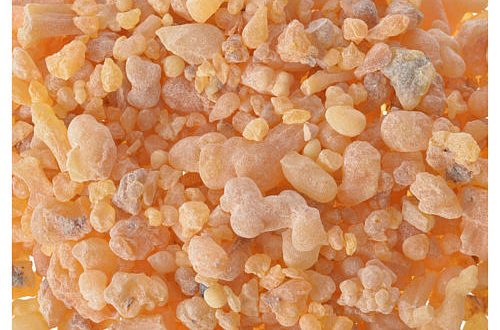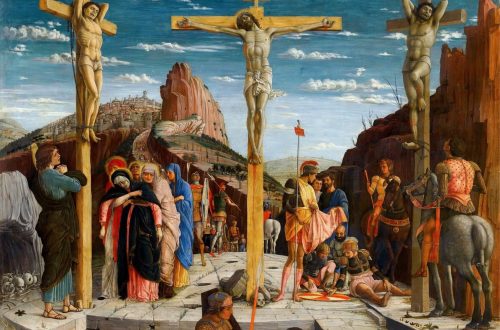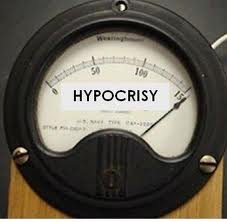Good News – Leviticus 23 (Unleavened Bread)
Lev 23:6-8 And on the fifteenth day of the same month is the Feast of Unleavened bread to the Lord; for seven days you shall eat unleavened bread. On the first day you shall have a holy convocation; you shall not do any ordinary work. But you shall present a food offering to the Lord for seven days. On the seventh day is a holy convocation; you shall not do any ordinary work.”
As the Passover is the day when the Passover lamb is slain is preparation for the impending end of oppression, the Feast of Unleavened Bread picks up at dusk at the end of the Passover (aka Preparation) day. It stretches from the execution of revenge upon death itself on through a Sabbath to the next day when the barley sheaves are waved. It concludes at the end of seven days. The Hebrew name for this week long feast is Chag HaMatzoth. In summary, it celebrates the passage from bondage to freedom.
Lev 23:6-8 And on the fifteenth day of the same month is the Feast of Unleavened bread to the Lord; for seven days you shall eat unleavened bread. On the first day you shall have a holy convocation; you shall not do any ordinary work. But you shall present a food offering to the Lord for seven days. On the seventh day is a holy convocation; you shall not do any ordinary work.”
As the Passover is the day when the Passover lamb is slain is preparation for the impending end of oppression, the Feast of Unleavened Bread picks up at dusk at the end of the Passover (aka Preparation) day. It stretches from the execution of revenge upon death itself on through a Sabbath to the next day when the barley sheaves are waved. It concludes at the end of seven days. The Hebrew name for this week long feast is Chag HaMatzoth. In summary, it celebrates the passage from bondage to freedom.
Unleavened Bread
Gal 5:9 A little leaven leavens the whole lump. Leaven makes bread rise. On the morning of 15 Nisan (circa 1447 BC) Pharaoh ordered the Jews to leave. They left in a hurry, staying only long enough to make light provisions (bread without leaven was fast to make and easy to carry) and do a little plundering. They didn’t have time to let their bread rise.
Leaven
1 Cor 5:7-8 Cleanse out the old leaven that you may be a new lump, as you really are unleavened. For Christ, our Passover lamb, has been sacrificed. Let us therefore celebrate the festival, not with the old leaven, the leaven of malice and evil, but with the unleavened bread of sincerity and truth. While circumstance made unleavened bread a practical necessity, the spiritual meaning is also very important. Leaven represents sin. A little bit goes a long way and once its been mixed into the dough, there’s no (natural) way of removing it. The unleavened bread symbolizes life giving sustenance devoid of sin. Jesus was sinless, and Jesus was also known as the Word (Jn 1). We are to live not on bread alone, but on every word that proceeds from the mouth of God (Mt 4:4). We are to accept and be filled with the Word. The leaven is supernaturally removed by being washed out with the blood of Jesus. The effect is like spiritual circumcision.
Sabbath During Unleavened Bread
Rev 1:8 “I am the Alpha and the Omega,” says the Lord God, “who is and who was and who is to come, the Almighty.” The first and last days are special in the overall celebration, marking the start and end. Jesus proclaimed himself Lord of the Sabbath (Mt 12:8). It should be noted that the weekly Sabbath could fall on any day of this feast. While the first and last days of the feast are holy convocations where no work is to be done and they are similar to the Sabbath day, the fixed dates mean Sabbath could fall on any day of the feast.
Waving of Barley Sheaf
Lev 23:10-11 Speak to the people of Israel and say to them, When you come into the land that I give you and reap its harvest, you shall bring the sheaf of the firstfruits of your harvest to the priest, and he shall wave the sheaf before the Lord, so that you may be accepted. On the day after the Sabbath the priest shall wave it. Barley is the first grain to ripen in the Spring. The first barley taken in sheaves is waved by the priests the day following the Sabbath during the Feast of Unleavened Bread. Jesus was raised from the dead the morning following the Sabbath during the Feast of Unleavened Bread. The waving barley represents the rising Jesus.
Clarifying Feast of First Fruits
My bible, like many, incorrectly labels the passage Lev 23:9-14 as a feast called Feast of Firstfruits. This passage is descriptive of the action to be taken on the day after Sabbath during Unleavened Bread, not a separate feast. The harvest for this early season is barley. Elsewhere in scripture, such as Ex 23:14-17, the phrase “Feast of Firstfruit” is used in reference (as an alternate name for) the third spring feast, Feast of Weeks. There is a similar waving of firstfruits as part of that feast, but in that later season it is wheat just coming to harvest, not barley. In Part 5 we will explore this next feast.
Partial Fast
Lev 9:14 And you shall eat neither bread nor grain parched or fresh until this same day, until you have brought the offering of your God: it is a statute forever throughout your generations in all your dwellings. This verse should remove all doubt about whether Lev 9-14 belongs with Unleavened Bread or Weeks. The edict not to eat stored or fresh grain or bread until the waving ceremony would mean 7 weeks of no bread if you counted it as part of the Feast of Weeks, a practical impossibility for the people. This partial fast requirement represents a hardship. It symbolizes the sadness of the disciples while Jesus was in the grave.
Giving
Ex 23:14-15 Three times in the year you shall keep a feast to me. You shall keep the Feast of Unleavened Bread. As I commanded you, you shall eat unleavened bread for seven days at the appointed time in the month of Abib [known today as Nisan], for in it you came out of Egypt. None shall appear before me empty-handed. Three of the feasts have greater significance in that the people are required to come before God and not be empty handed. These are Unleavened Bread, Weeks, and Tabernacles. Two of these three are week long events. Even as God requires his people not to be empty handed, He celebrates the feasts by giving us His greatest gifts. Unleavened bread signifies the period during which Jesus was in the tomb and later resurrected. This is the gift of overcoming death on our behalf. The second such feast, Weeks, is a one-day event where the Holy Spirit was poured on men. The third such feast and last on the list of seven appears to prophetically represent the final gift to mankind, our permanent dwelling place in the Lord’s presence in the New Jerusalem.
The Good News of Unleavened Bread
While we cannot remove our own sins through our own means, as we are but flesh, the free gift of Christ is grace and mercy. Through his blood he substituted his own death as the wage for our sin. Holy communion is but a symbol, like the Unleavened Bread, representing our permission to take in holiness in place of sin when we do so in faith. Believe Jesus is the son of God, trust him to keep his word for your eternal salvation, and give him permission to be the direct and personal Lord of your life. He will make you more than a servant earning a wage, but a son with an eternal inheritance.



2 Comments
HeatherMartinz
The feast of Unleavened Bread for a Chistian
I just want to clarify. Would having a communion ceremony at home be a way for Christians to celebrate Passover and the fest of Unleavened Bread, or are we still obligated to keep the law? What about the rest of the week? Any information you can provide is greatly appreciated! Thanks!
Lance Ponder
Feast Reply
Heather, I personally believe it is beautiful and indeed proper to celebrate this feast with the inclusion of communion, whether at home or anywhere. When Jesus told us (through his disciples) about the new element in the passover dinner we now call communion, he told them to "do this in remembrance of me." Similarly, God instructed the people (through Moses) to keep the feasts and teach the children to do the same. The point was never to construct a maze through which we reach Him, but to draw us closer to Him through acts which draw our attention to the beauty as well as the suffering of God and His people. Anything that means anything in our lives gets that meaning through experience. To know what God has done is to know what God will yet do. For that to be real, to have meaning to us deeply and personally, we need to experience these things God has given us.
Do we have to keep the law? Yes and no. Not in the sense that we have to obey jot and tittle and mark off our deeds on some checklist. Yes in the sense that God gives us parts of the law as boundaries for our protection, part to experience and thus remember Him, and part to aid us in our endeavors to get along with each other. There are consequence for all our actions (an inactions). When we disobey, whether by choice or ignorance, we move away from God and that limits us from being all that we were created to be. We obey, not to gain God's favor and not to redeem ourselves, for we can do neither. Jesus did that. We obey because it is good and healthy and expresses our love to, from, and through Him. Our God is the balm of Gilead and the Rock of our salvation. We are His creation, created to be and to express His glory.
I hope this helps.
-Lance